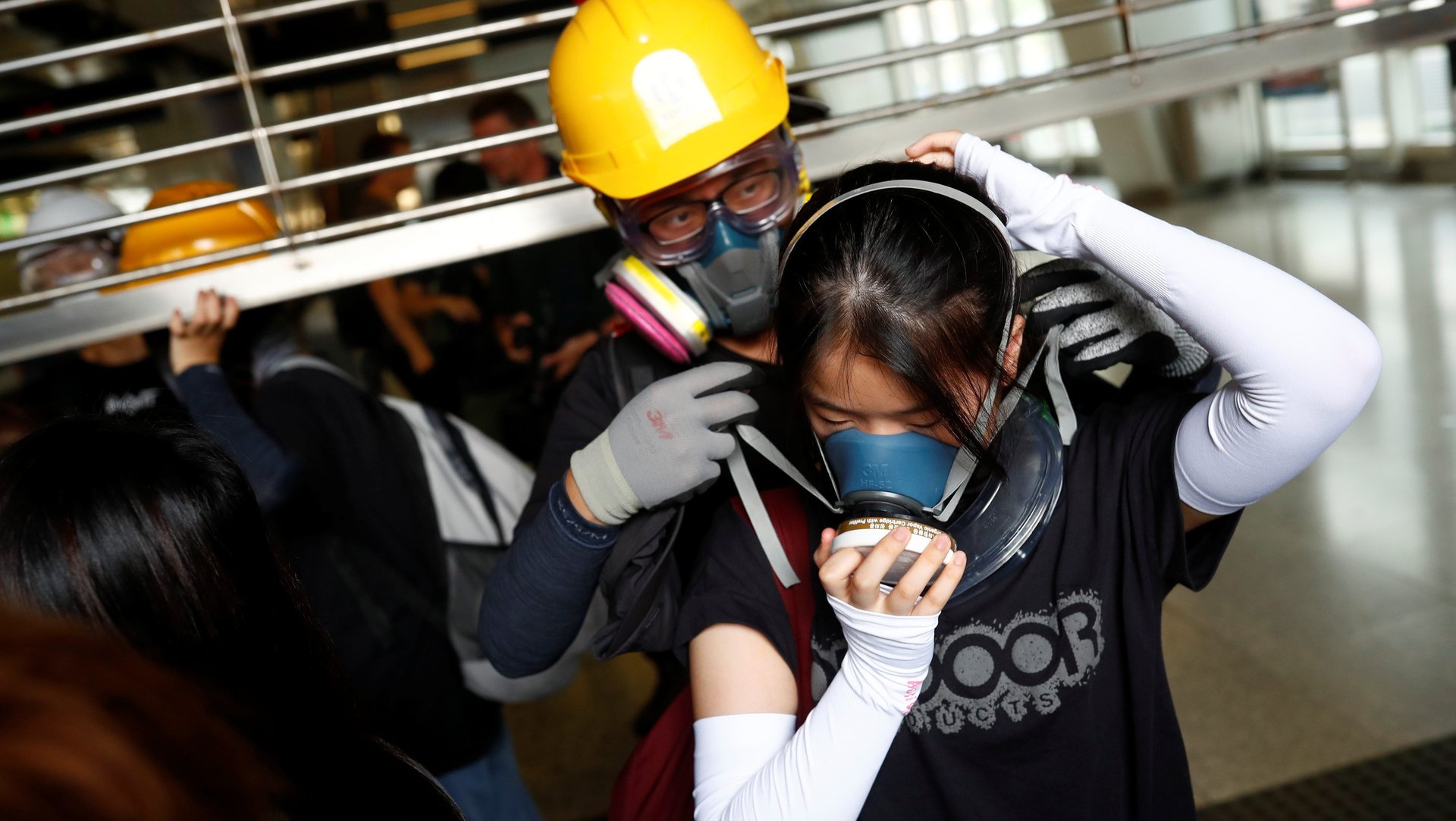Hong Kong’s protests passed a notable milestone, and sensitive days lie ahead
Hong Kongers have long believed that it’s Beijing, and not chief executive Carrie Lam, who’s calling the shots on how to deal with the city’s ongoing protests. Her refusal to fully withdraw the extradition bill that first sparked the mass demonstrations—one of the protesters’s five core demands—was evidence in the eyes of some not of intransigence, but of powerlessness.


Hong Kongers have long believed that it’s Beijing, and not chief executive Carrie Lam, who’s calling the shots on how to deal with the city’s ongoing protests. Her refusal to fully withdraw the extradition bill that first sparked the mass demonstrations—one of the protesters’s five core demands—was evidence in the eyes of some not of intransigence, but of powerlessness.
Those suspicions were confirmed today with a Reuters report that said Lam had in fact recommended withdrawing the bill she earlier “indefinitely suspended” as a way to defuse the city’s worst political crisis since it returned to Chinese rule. But Beijing wouldn’t allow it.
That news—and the events of recent months—are a reminder that the city’s lack of democracy is at the heart of both this summer’s protests, and the ones in 2014. Five years ago, China’s legislature handed down a decision that dashed hopes that Hong Kong’s future leaders would be chosen democratically, which kicked off the Umbrella Movement. The current protests have revived the call for genuinely democratic elections for the city’s leadership.
This week, the movement officially surpassed the Umbrella Movement’s 79-day street occupation—and protesters say they learned from the last time around not to retreat from the streets empty-handed even as a sensitive date looms on the horizon.
Oct. 1 is the 70th anniversary of the founding of the People’s Republic of China. Large-scale protests in Hong Kong on that sacred date would mortify the Chinese government. Ahead of the anniversary, the past month has seen increasingly strident criticism of the protesters by China’s state-run media, as well as the release of a video showing Chinese troops quelling riots while speaking Cantonese, the language of Hong Kong. The rotation of fresh troops to the city’s People’s Liberation Army garrison this week—an annual exercise—was more visible than usual.
Meanwhile Friday brought a wave of arrests of high-profile young democracy activists, including Joshua Wong and Agnes Chow, even though they haven’t been at the forefront of this year’s crowd-sourced protests. The arrests, as well as attacks by armed thugs on protest organizers, felt like the first steps of a crackdown on the movement as it became crystal clear that it’s Beijing, and not Hong Kong’s leaders, that will decide the way forward.